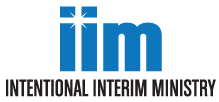As an experienced pastor, if you desire to be on the IIM Network’s Pastor list for Texas Baptists, it is imperative that you complete specialized interim ministry training.
Those working outside of Texas Baptist life will find the training easily adaptable to your context.
Check out the IIM Training sessions required for Network membership. Also check our IIM Events calendar to review upcoming training sessions scheduled around Texas.
“Introduction to Interim Ministry” training
This three-day training helps ministers in traditional interim setting do more than simply supply the pulpit. It is designed to help an Interim Pastor assist a church with common issues that impact the search for its next pastor. The main focuses of this training session are:
- Negotiating duties and salary
- Engaging the new church’s system quickly and effectively
- Self-examination concerning one’s call to interim ministry
- Methods for analyzing critical issues in a church
- Exiting the interim pastorate in a helpful and healthy way
While this training stands alone to help those who will be serving churches in traditional interim situations, it also serves as a prerequisite for acceptance into the Intentional Interim Ministry certification.
“Intentional Interim Ministry” training process
The IIM training begins with a five-day residential lab that blends lectures, guidebook work, small group interaction, large group presentations, roll play, readings, films, personal inventories, and group projects to teach the basics of Intentional Interim Ministry. Each student will leave with the knowledge necessary for guiding a church through an in-depth self-study.
The IIM student will examine:
- The dynamics of selecting, training, and coaching a Transition Team. This team leads the church through the interim self-study, assisted by the IIM pastor.
- There are five “Focus Points” in which a congregation must be thoroughly engaged before they begin the official pastor search.
- The first three Focus Points answer the question: “Who are we?” These areas of focus help the church develop a CHURCH PROFILE.
- 1. Heritage — Examining a church’s history, for example, coming to terms with why the last pastor(s) left
- 2. Leadership — A careful examination of staff positions, job descriptions, policies and procedures, bylaws, and lay leadership. Common issues addressed often include the recruiting and training of new leaders and seeking ways to involve more members in decision making so as to create a true consensus as the church moves forward.
- 3. Connections — Revisits the various relations the church has with others. Mos churches revisit their beliefs, polity, and partners.
- The fourth Focus Point answers the question: “Who does God want us to be?” This area of focus helps the church develop a PASTOR PROFILE.
- 4. Mission/Vision/Direction — Unites the church around a common vision of where the church should be heading. The church seeks a God-given purpose and to express it with generalities and specific short-term actions.
- The fifth Focus Point answers the question: “How are we going to get there?”
- 5. Future – This last task prepares a church for the calling of a pastor by calling out a Pastor Search Committee and charging them with finding a pastor who is a good match for what the church needs according to the Church and Pastor profiles that have been developed.
Intentional Interim Ministry Field Education Requirement
At the end of the five-day residential lab, each IIM Trainee is placed in an IIM Field Education Cohort group. The Cohort will continue to meet together for five months via scheduled telephone conferences. Each IIM Trainee will develop a design document for completing a self-study in one focus point within a church. The Cohort group will critique the design plan. After appropriate modifications to the plan, then the IIM Trainee will facilitate the focus point self-study process in a real church setting. Finally, the IIM Trainee will document a self-evaluation of the practicum process, identifying strengths and weaknesses as preparation for an IIM church assignment is anticipated.
IIM Network Continuing Education Requirement
At the Member Level, or higher, of the Intentional Interim Ministry Network, documentation of at least 10 hours of continuing education is required each year to remain active.
